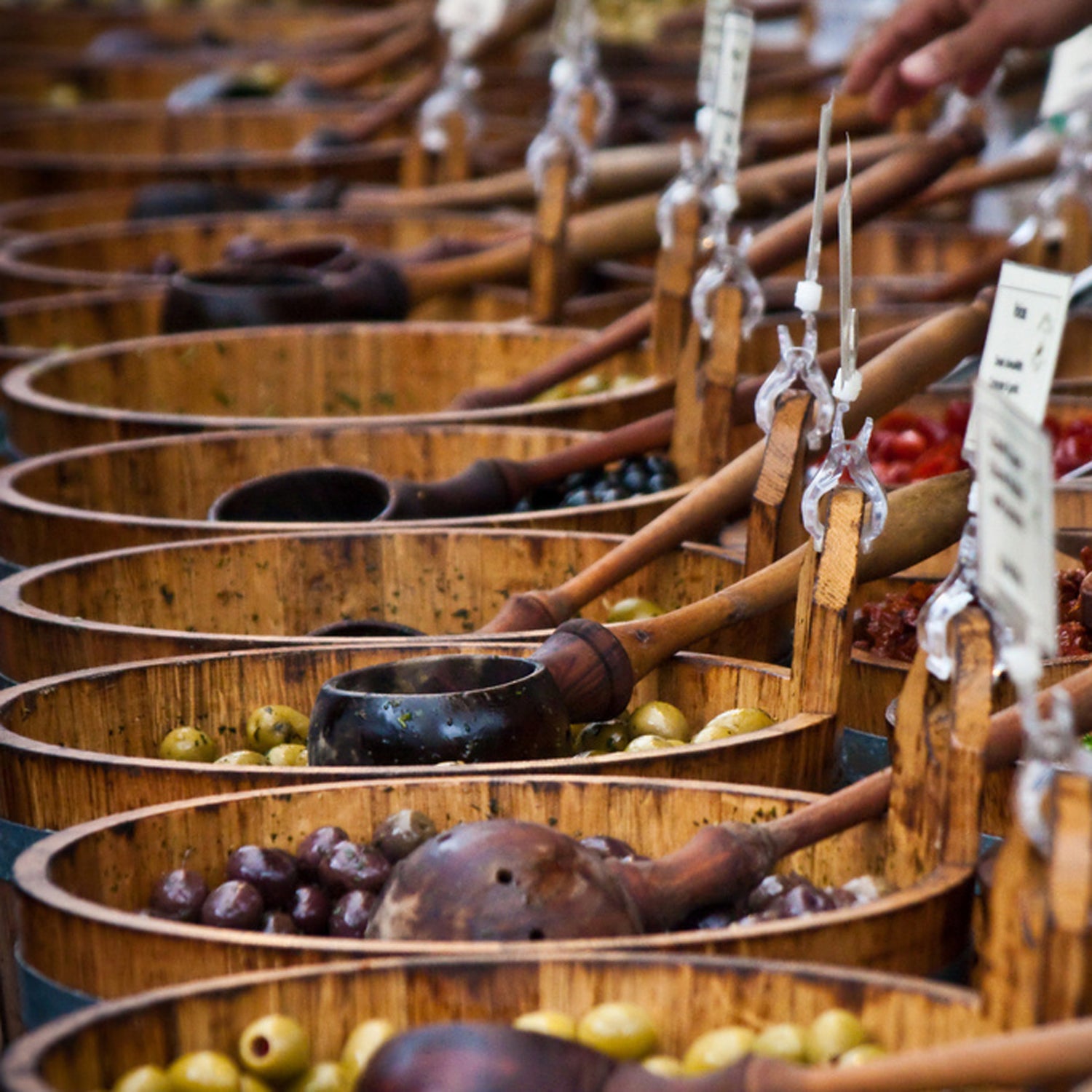The Mediterranean diet burst into American consciousness in the mid 1970s when renowned physiologist���������� as a heart-healthy way to eat. Since then, the primarily plant-based program has oscillated in popularity. Now, researchers are bringing it back because they believe��it could play a key role in curbing global warming—and keep you fit, with some important caveats.
“We analyzed how diets are changing in 100 countries around the world, the impacts of different food types on greenhouse gas emissions and land use, and the health impacts of different diets,” says Dr. David Tilman, author of a new study of the Mediterranean and similar pescatarian and vegetarian diets published in the journal Nature. “What we found is that alternative diets that have less empty calories and less meat are much healthier for you and have significant environmental advantages.”
Between 1961 and 2009, people began consuming more meat and empty calories—calories from solid fats and added sugars, Tilman and his colleagues found. The researchers speculated that diets in 2050 would contain fewer servings of fruits and vegetables but 60 percent more empty calories and 25 to 50 percent more animal protein than the current American diet.��
That jump in animal protein consumption is the greatest cause for alarm. Raising livestock that contribute to global warming. Our current diet trajectory, researchers believe, will lead to an 80-percent increase in global greenhouse gas emissions from food production, as well as habitat destruction because of land clearing to make room for livestock. “Diets are changing and will add as much to global greenhouse gas emissions in 2050 as currently comes from all forms of transportation—all the cars, trucks, and planes on earth,” says Tilman. “That’s a pretty significant impact.”
The Mediterranean diet, which consists of whole grains, fruits, vegetables, fish, legumes, and olive oil, could reduce a harmful dependency on animal protein. (Though it must be noted that some sustainability experts, like those at the��, believe current fishing practices����and pollute the environment, much like livestock farms. They recommend avoiding fish altogether, but if you do eat fish, they say to avoid��, like��.)��There’s even evidence the diet may aid athletic performance, making it a no-brainer choice for environmentally conscious athletes.��
The healthy, unsaturated fats—in the form of omega-3 fatty acids—in olive oil and fish has been shown to speed recovery by , and . There’s also that the Mediterranean diet may help increase power output, though it’s unclear what type of diet researchers compared it to.��
So why haven’t athletes gotten behind this diet? They’re concerned about its supposedly low-carb reputation.
“Overall, the Mediterranean diet is a good, healthy diet,” says AnnaThalacker-Mercer, Ph.D., a professor of nutrition at Cornell University. “One of the issues that might come up is the level of carbohydrates.” The Mediterranean diet is is rich in whole grains, fruits, and vegetables, which can provide plenty of carbs, but most of these foods are eaten in portions that may be inadequate for endurance athletes—though recent research suggest athletes can perform well on far fewer carbs than most experts recommend.
“Athletes, especially, need a lot of complex carbohydrates,” says Elizabeth Ward, R.D. Carbs are the main source of fuel for our bodies: they convert into glycogen in our livers, which fuels working muscles. Generally, an athlete needs about . That’s 640 grams of carbs daily for a 160-pound athlete. For comparison, a single apple has about 25 grams of carbs.��
There are a few simple ways to get the carbs you need while on the Mediterranean diet without eating 25 apples a day. Sweet potatoes are Med-diet approved. While many vegetables aren’t particularly high in carbs, sweet potatoes are a nutritional powerhouse, with�� and seven grams of fiber per diced cup. Whole wheat pasta and bread, typically served as side dishes in the Mediterranean diet, pack 37 grams of carbs per cup and , respectively.
Ward also notes that beans, yogurt, and eggs—other staples of the diet—are ideal for any performance athlete. “With dairy and beans, you’re getting both carbs and protein,” says Ward. “I like foods that do double duty.”
In the end, there’s no reason to worry that the Mediterranean diet could slow you down. Marketed mostly as a heart-healthy, weight-loss diet, the Mediterranean diet is also ideal for performance, with some extra higher-carb Med-diet acceptable foods thrown in. And, in the end, it could help save the planet.


